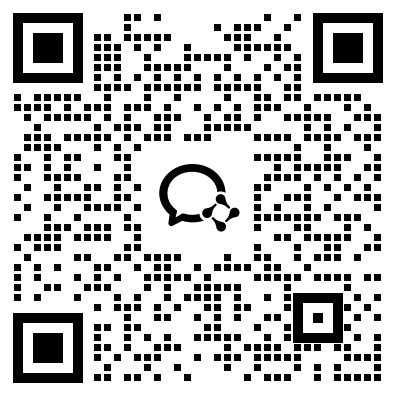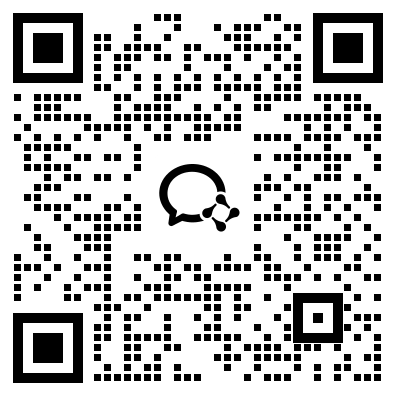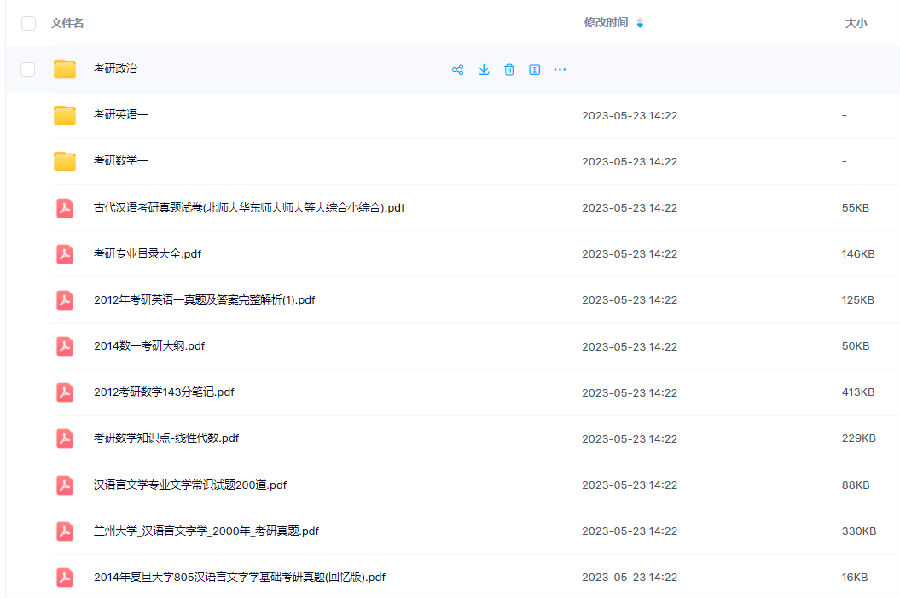特惠-26考研冲刺
特惠-27考研课
双证-在职硕士
免联考-同等学力
26考研-肖八笔记
26考研-时政刷题
26考研-作文押题
26考研-全套真题
26考研-提前估分
保研-路线图
27考研-智能择校
27考研-英语测评
27考研-新大纲对比
热门-计算机择校

扫码加入训练营
牢记核心词
学习得礼盒
真题是非常重要的学习资料,它能更好地帮助我们巩固所学的知识,大家在备考时候要多做一些真题,这样对真题高频考点有所了解,更有目的做好备战,新东方在线考研小编整理了“广东财经大学2024考研真题:613-英语水平考试(自命题)”,希望对考生能有帮助。
广东财经大学2024考研真题:613-英语水平考试(自命题)
Part I Multiple Choice (30分,每题1分,共30题)
Directions: Choose from the four choices marked A, B, C and D the one that best completes the sentence. Write your answers on the Answer Sheet.
1. I now realize I could have applied to those NSF programs, but I did not even ______ of their existence, and no one bothered to tell me about them.
A. speculate B. conceive C. ponder D. reckon
2. There is much I enjoy about the changing seasons, but my favorite time is the ______ from fall to winter.
A. transmission B. transformation C. transition D. transfer
3. We will help to promote the fifth National Prescription Drug Take Back Day on September 29 when citizens can ______ their unwanted and expired medicines in a safe and responsible manner.
A. turn down B. turn up C. turn out D. turn in
4. Our new keyboards with easy-switch Bluetooth technology will be ______ with the new iPad, and with compact designs and sleek looks they'll make a great fit as well.
A. comparable B. comparative C. compatible D. harmonious
5. I was so internally twisted with rage that as I drove home I experienced a(n) ______ to jerk the wheel into oncoming traffic, just to make it all stop.
A. impulse B. instinct C. stimulation D. surge
6. Oil companies in the U.S. are already beginning to feel the pressure. Refinery workers and petroleum-equipment-manufacturing employees are being ______.
A. laid out B. laid off C. laid down D. laid aside
7. Among all the public holidays, National Day seems to be the most joyful to the people of the country; on that day the whole country is ______ in a festival atmosphere.
A. trapped B. sunk C. soaked D. immersed
8. Encouraged by their culture to voice their opinions freely, the Canadians are not afraid to go against the group ______, and will argue their viewpoints enthusiastically, even aggressively sometimes.
A. consent B. conscience C. consensus D. consciousness
9. A pure Alfred Hitchcock cloud of mist settled over the course. As the morning ______, the air became bitter cold and the fog grew thicker.
A. wore on B. wore away C. wore off D. wore out
10. To find a mate, the male ruffed grouse stands on a hollow log and beats his wings, making a drumming sound. The hollow log ______ the sound so that it can be heard for up to a quarter of a mile.
A. intensifies B. amplifies C. enlarges D. reinforces
1
11. From my readings of commentators of many centuries, civilization has always been on the ______ of self-destruction.
A. margin B. border C. verge D. fringe
12. Faced with a starving army and the approaching Russian winter, Napoleon beat a(n) ______ retreat from burned-out Moscow.
A. emergency B. hasty C. immediate D. urgent
13. Located in Washington D.C., the Library of Congress contains an impressive ______ of books on every conceivable subject.
A. flock B. configuration C. array D. pile
14. Some cafés offer live music from resident bands or guest singers, and you can ______ the evening with disco dancing in the nightclub.
A. round about B. round off C. round on D. round up
15. The ______ murder has been the subject of three books, dozens of magazine features and hundreds of newspaper articles.
A. sensible B. sensitive C. sentimental D. sensational
16. Governments today play an increasingly larger role in the ______ of welfare, economics, and education.
A. scopes B. ranges C. ranks D. domains
17. Programs bringing various forms of cultural expressions to the people of a nation ______ the barriers of race, gender, and ethnicity we construct to divide ourselves.
A. transcend B. traverse C. abolish D. exceed
18. In some remote places there are still very poor people who can't afford to live in ______ conditions.
A. gracious B. decent C. honorable D. positive
19. ______ racism and sexism, the term "speciesism" is a prejudice or attitude of bias in favor of the interests of members of one's own species and against those of members of other species.
A. By analogy with B. By virtue of C. In line with D. In terms of
20. Migrants' attraction to larger industrial cities heightened the difficulties they faced. In cities like Chicago and Philadelphia, there was comparatively little ______ land left for development inside the city limits.
A. void B. vacant C. blank D. shallow
21. Among school-going youth this disease usually ______ itself as painful afflictions such as headaches, backaches, sore eyes, dizziness, cramps, and craziness that prevent one from attending class, studying, reading, and taking exams.
A. expresses B. manifests C. reflects D. displays
22. Various efforts have been made over the centuries to predict earthquakes, including observing lights in the sky and ______ animal behavior.
A. abnormal B. exotic C. absurd D. erroneous
23. The Internet has opened up so many choices to us that we can feel ______ with making decisions.
A. overflowed B. overthrown C. overwhelmed D. overturned
24. Asians raised in Asian countries experience themselves as the majority and see Asian faces portrayed in their mainstream media all the time. ______, Asian-Americans suffer from a lack of representation and carry a shared history of discrimination and prejudice.
2
A. In contrast B. On the contrary C. In comparison D. By comparison
25. In Spain, those lower borrowing costs sparked a housing ______ much like the buying and building frenzy unleashed by low rates in the United States.
A. boost B. boom C. rise D. explosion
26. Draco peered at him intently, and Harry felt the man's eyes ______ on the scar on his forehead.
A. reside B. dwell C. linger D. hang
27. The bank is offering a(n) ______ to anyone who can give information about the robbery.
A. reward B. bonus C. prize D. award
28. Accurate estimates of the overall costs of computer misuse in the UK are hard to ______, but various recent figures put the annual cost at somewhere between £400m and £2bn.
A. come by B. come about C. come for D. come off
29. A generous handful of fresh strawberries will provide your daily ______ of vitamin C, along with manganese and a dozen other nutrients.
A. ratio B. quota C. allocation D. portion
30. Most weather events don't occur ______. A whole industry has been built around being able to predict what path a certain storm will take and how and when it will affect most of us.
A. simultaneously B. autonomously C. spontaneously D. naturally
Part II Proofreading and Error Correction (30分,每题2分,共15题)
Directions: The following two passages contain FIFTEEN errors. Each indicated line contains a maximum of ONE error. In each case, only ONE word is involved. You should proofread the passages and correct them in the following way. Write your answers on the Answer Sheet.
For a missing word,
For an unnecessary word,
For a wrong word,
write in the blank the word you believe to be missing together with the word next to it.
write in the blank the word you believe to be unnecessary and cross it out with a slash “/”.
write in the blank the word you believe to be wrong and provide the correct word.
Example:
When ∧ art museum wants a new exhibit, it never buys things in finished form and hangs them on the wall. When a natural history museum wants an exhibition, it must often build it.
(1) art → an art
(2) never → never
(3) exhibition → exhibit
Passage A
Culture refers to the social heritage of a people — the learned patterns for thinking, feeling and acting that characterize a population or society, include the expression of these patterns in material things. Culture is composed of nonmaterial culture, abstract creations like values, beliefs, customs and institutional arrangements, and material culture, physical object like cooking
1. __________
2. __________
3
pots, computers and bathtubs. In sum, culture reflects both the ideas we share or everything we make. In ordinary speech, a person of culture is the individual can speak another language, the person who is unfamiliar with the arts, music, literature, philosophy, or history. But to sociologists, to be human is to be cultured, because of culture is the common world of experience we share with other members of our group. Culture is essential to our humanness. It provides a kind of map for relating to others. Consider how you feel your way about social life. How do you know how to act in a classroom, or a department store, or toward a person who smiles or laugh at you? Your culture supplies you by broad, standardized, ready-made answers for dealing with each of these situations. Therefore, if we know a person's culture, we can understand and even predict a good deal of his behavior.
3. __________
4. __________
5. __________
6. __________
7. __________
8. __________
Passage B
Speech, the act of uttering sounds to convey meaning, is a kind of human action. Like any other constantly repeated action, speaking has to be learned, but once it is learned, it becomes generally unconscious and apparently automatic process.
As far as we can determine, human beings do not need to be forced to speak: most babies seem to possess a sort of instinctive drive to produce speechlike noises. How to speak and what to say are together another matter. These actions are learned from the special society into which the baby is born, so that, like all conduct that is learned from a society --- from the people around us, speech is a patterned activity.
The meandering babble and chatter of a young child are eventually channeled by the imitation into a few orderly grooves that represent the pattern accepted as meaningful by the people around him. Similarly, a child's indiscriminate practice of putting things into his mouth becomes limited to put food into his mouth in a certain way.
The sounds that a child can make are more varied and numerous than that any particular language utilizes. However, a child born into a society with a pattern of language is encouraged to make a little selection of sounds and to make these few sounds over and over again until it is natural for him to make these sounds and no others.
9. __________
10. __________
11. __________
12. __________
13. __________
14. __________
15. __________
Part III Sentence Completion (30分,每题2分,共15题)
Directions: Fill in the blank in each sentence with an appropriate form of the word given in the bracket according to the meaning of the sentence. Write your answers on the Answer Sheet.
Example: All the structures and systems the Ibeto Group has laboriously (labor) built over the years are rapidly crumbling.
1. Don't copy nature too much. Art is an ______(abstract).
2. Thin drizzle ______(damp) the pavement, which gleamed in reflection of the oil-lamps within.
4
3. Mothers caring for their children on their own may need to find outside employment, and the strain of the dual role may result in a ______(chaos) lifestyle where the children get less attention, household chores remain undone and mealtimes and bedtimes become irregular.
4. A caring and just society must depend on public and private provision and, in the words of John Patten, “a third force”, ______(name) the active citizen.
5. Donald Trump was suspected of being directly involved in both ______(false) records and arranging the payments in an effort to benefit his election prospects.
6. It sounds a little ______(pretend), but it’s true.
7. Sri Lanka's teeming wildlife, including leopards, elephants, and a variety of bird species, adds an extra layer of ______(enchant) to its natural wonders.
8. My favourite dish of the night was Cheesy Spicy Stir Fried Pork Rice, a rice dish topped with cheese, pork and onions. I was blown away by how delicious this ______(seem) simple dish was.
9. Some parents felt ______(hesitate) about getting their kids vaccinated for COVID-19.
10. A therapist’s role is to help people comprehend and ______(empathy) with others as well as to explore their own feelings.
11. This growing desire among travellers to explore lesser-known destinations reflects a ______(yearn) for unique experiences and a break from conventional tourist spots.
12. Language lessons are part of their post-Brexit visa requirements, and Heidi is ______(justify) proud that she passed the required test after 100 hours of lessons.
13. Letters to the editor are subject to editing for ______(brief) and clarity. Limit letters to 200 words and allow 30 days between submissions.
14. Allen has found himself ______(alien) from colleagues, companies, and even fans who formerly flocked to his films.
15. Higher taxes can diminish ______(dispose) income, leaving consumers with less money for essential needs and savings.
Part IV Reading Comprehension
Section A: Multiple Choice Questions (50分,每题2分,共25题)
Directions: In this section there are six passages followed by some questions or unfinished statements, each with four suggested answers marked A, B, C and D. Choose the one that you think is the best answer and mark your answers on the Answer Sheet.
Passage One
Traditionally, the study of history has had fixed boundaries and focal points — periods, countries, dramatic events, and great leaders. It also has had clear and firm notions of scholarly procedure: how one inquires into a historical problem, how one presents and documents one's findings, what constitutes admissible and adequate proof. Anyone who has followed recent historical literature can testify to the revolution that is taking place in historical studies. The currently fashionable subjects come directly from the sociology catalog: childhood, work, leisure. The new subjects are accompanied by new methods. Where history once was primarily narrative, it is
5
now entirely analytic. The old questions “What happened?” and “How did it happen?” have given way to the question “Why did it happen?” Prominent among the methods used to answer the question “Why” is psychoanalysis, and its use has given rise to psychohistory.
Psychohistory does not merely use psychological explanations in historical contexts. Historians have always used such explanations when they were appropriate and when there was sufficient evidence for them. But this pragmatic use of psychology is not what psychohistorians intend. They are committed, not just to psychology in general, but to Freudian psychoanalysis. This commitment precludes a commitment to history as historians have always understood it. Psychohistory derives its “facts” not from history, the detailed records of events and their consequences, but from psychoanalysis of the individuals who made history, and deduces its theories not from this or that instance in their lives, but from a view of human nature that transcends history. It denies the basic criterion of historical evidence: that evidence be publicly accessible to, and therefore assessable by, all historians. And it violates the basic tenet of historical method that historians be alert to the negative instances that would refute their theses. Psychohistorians, convinced of the absolute rightness of their own theories, are also convinced that theirs is the “deepest” explanation of any event, that other explanations fall short of the truth.
Psychohistory is not content to violate the discipline of history (in the sense of the proper mode of studying and writing about the past); it also violates the past itself. It denies to the past an integrity and will of its own, in which people acted out of a variety of motives and in which events had a multiplicity of causes and effects. It imposes upon the past the same determinism that it imposes upon the present, thus robbing people and events of their individuality and of their complexity. Instead of respecting the particularity of the past, it assimilates all events, past and present, into a single deterministic schema that is presumed to be true at all times and in all circumstances.
(447 words)
1. Which of the following statements is true according to the passage?
A. The approach of psychohistorians to historical study is currently very popular even though it lacks the rigor and verifiability of traditional historical method.
B. Traditional historians can benefit from studying the techniques and findings of psychohistorians.
C. Areas of sociological study such as childhood and work are of little interest to traditional historians.
D. The psychological assessment of an individual’s behavior and attitudes is more informative than the details of his or her daily life.
2. It can be inferred from the passage that the methods used by psychohistorians probably prevent them from ________.
A. presenting their material in chronological order
B. producing a one-sided picture of an individual's personality and motivations
C. uncovering alternative explanations that might cause them to question their own conclusions
D. offering a consistent interpretation of the impact of personality on historical events
3. Which of the following is a characteristic of the practice of psychohistorians?
A. The lives of historical figures are presented in episodic rather than narrative form.
B. Archives used by psychohistorians to gather material are not accessible to other scholars.
C. Past and current events are all placed within the same deterministic schema.
6
D. Events in the adult life of a historical figure are seen to be more consequential than are those in the childhood of the figure.
4. This passage suggests that psychohistorians view history primarily as ________.
A. a report of events, causes, and effects that is generally accepted by historians but which is, for the most part, unverifiable
B. an episodic account that lacks cohesion because records of the role of childhood, work, and leisure in the lives of historical figures are rare
C. an uncharted sea of seemingly unexplainable events that have meaning only when examined as discrete units
D. a record of the way in which a closed set of immutable psychological laws seems to have shaped events
5. What is the author’s attitude towards psychohistory?
A. Critical. B. Approving. C. Sarcastic. D. Wavering.
Passage Two
Despite Denmark's manifest virtues, Danes never talk about how proud they are to be Danes. This would sound weird in Danish. When Danes talk to foreigners about Denmark, they always begin by commenting on its tininess, its unimportance, the difficulty of its language, the general small-mindedness and self-indulgence of their countrymen and the high taxes. No Dane would look you in the eye and say, “Denmark is a great country.” You're supposed to figure this out for yourself.
It is the land of the silk safety net, where almost half the national budget goes toward smoothing out life's inequalities, and there is plenty of money for schools, day care, retraining programmes, job seminars — Danes love seminars: three days at a study centre hearing about waste management is almost as good as a ski trip. It is a culture bombarded by English, in advertising, pop music, the Internet, and despite all the English that Danish absorbs — there is no Danish Academy to defend against it — old dialects persist in Jutland that can barely be understood by Copenhageners. It is the land where, as the saying goes, “Few have too much and fewer have too little,” and a foreigner is struck by the sweet egalitarianism that prevails, where the lowliest clerk gives you a level gaze, where Sir and Madame have disappeared from common usage, even Mr and Mrs. It's a nation of recyclers — about 55% of Danish garbage gets made into something new — and no nuclear power plants. It's a nation of tireless planners. Trains run on time. Things operate well in general.
Such a nation of overachievers — a brochure from the Ministry of Business and Industry says, “Denmark is one of the world's cleanest and most organized countries,
with virtually no pollution, crime, or poverty. Denmark is the most corruption-free society in the Northern Hemisphere.” So, of course, one's heart lifts at any sighting of Danish sleaze: skinhead graffiti on buildings (“Foreigners Out of Denmark!”), broken beer bottles in the gutters, drunken teenagers slumped in the park.
Nonetheless, it is an orderly land. You drive through a Danish town, it comes to an end at a stone wall, and on the other side is a field of barley, a nice clear line: town here, country there. It is not a nation of jaywalkers. People stand on the curb and wait for the red light to change, even if it's 2 a.m. and there's not a car in sight. However, Danes don't think of themselves as a waiting-at-2-a.m.-for-the-green-light people — that's how they see Swedes and Germans. Danes see themselves as jazzy people, improvisers, more free-spirited than Swedes, but the truth is (though one should not say it) that Danes are very much like Germans and Swedes. Orderliness is a main selling point. Denmark has few natural resources, limited manufacturing capability; its future in Europe will be as a broker, banker, and distributor of goods. You send your goods by container ship to Copenhagen, and these bright, young, English-
7
speaking, utterly honest, highly disciplined people will get your goods around to Scandinavia, the Baltic States, and Russia. Airports, seaports, highways, and rail lines are ultramodern and well-maintained.
The orderliness of the society doesn't mean that Danish lives are less messy or lonely than yours or mine, and no Dane would tell you so. You can hear plenty about bitter family feuds and the sorrows of alcoholism and about perfectly sensible people who went off one day and killed themselves. An orderly society cannot exempt its members from the hazards of life.
But there is a sense of entitlement and security that Danes grow up with. Certain things are yours by virtue of citizenship, and you shouldn’t feel bad for taking what you’re entitled to, you’re as good as anyone else. The rules of the welfare system are clear to everyone, the benefits you get if you lose your job, the steps you take to get a new one; and the orderliness of the system make it possible for the country to weather high unemployment and social unrest without a sense of crisis.
(679 words)
6. The author thinks that Danes adopt a ________ attitude towards their country.
A. boastful B. modest C. deprecating D. mysterious
7. Which of the following is NOT a Danish characteristic cited in the passage?
A. Fondness of foreign culture. B. Equality in society.
C. Linguistic tolerance. D. Persistent planning.
8. What is the author's reaction to the statement by the Ministry of Business and Industry?
A. Disapproving. B. Approving. C. Noncommittal. D. Doubtful.
9. According to the passage, Danish orderliness ________.
A. sets the people apart from Germans and Swedes
B. spares Danes social troubles besetting other peoples
C. is considered economically essential to the country
D. prevents Danes from acknowledging existing troubles
10. At the end of the passage the author states all the following EXCEPT that ________.
A. Danes are clearly informed of their social benefits
B. Danes take for granted what is given to them
C. the open system helps to tide the country over
D. orderliness has alleviated unemployment.
Passage Three
Age has its privileges in America. And one of the more prominent of them is the senior citizen discount. Anyone who has reached a certain age — in some cases as low as 55 — is automatically entitled to a dazzling array of price reductions at nearly every level of commercial life. Eligibility is determined not by one's need but by the date on one's birth certificate. Practically unheard of a generation ago, the discounts have become a routine part of many businesses — as common as color televisions in motel rooms and free coffee on airliners.
People with gray hair often are given the discounts without even asking for them; yet, millions of Americans above age 60 are healthy and solvent. Businesses that would never dare offer discounts to college students or anyone under 30 freely offer them to older Americans. The practice is acceptable because of the widespread belief that “elderly” and “needy” are synonymous. Perhaps that once was true, but today elderly Americans as a group have a lower poverty rate than the rest of the population. To be sure, there is economic diversity within the elderly, and many older Americans are poor. But most of them aren't.
8
It is impossible to determine the impact of the discounts on individual companies. For many firms, they are a stimulus to revenue. But in other cases the discounts are given at the expense, directly or indirectly, of younger Americans. Moreover, they are a direct irritant in what some politicians and scholars see as a coming conflict between the generations.
Generational tensions are being fueled by continuing debate over Social Security benefits, which mostly involves a transfer of resources from the young to the old. Employment is another sore point. Buoyed by laws and court decisions, more and more older Americans are declining the retirement dinner in favor of staying on the job — thereby lessening employment and promotion opportunities for younger workers.
Far from a kind of charity they once were, senior citizen discounts have become a formidable economic privilege to a group with millions of members who don't need them. It no longer makes sense to treat the elderly as a single group whose economic needs deserve priority over those of others. Senior citizen discounts only enhance the myth that older people can't take care of themselves and need special treatment; and they threaten the creation of a new myth, that the elderly are ungrateful and taking for themselves at the expense of children and other age groups. Senior citizen discounts are the essence of the very thing older Americans are fighting against — discrimination by age.
(434 words)
11. We learn from the first paragraph that ________.
A. offering senior citizens discounts has become routine commercial practice
B. senior citizen discounts have enabled many old people to live a decent life
C. giving senior citizens discounts has boosted the market for the elderly
D. senior citizens have to show their birth certificates to get a discount
12. What assumption lies behind the practice of senior citizen discounts?
A. Businesses, having made a lot of profits, should do something for society in return.
B. Old people are entitled to special treatment for the contribution they made to society.
C. The elderly, being financially underprivileged, need humane help from society.
D. Senior citizen discounts can make up for the inadequacy of the Social Security system.
13. According to some politicians and scholars, senior citizen discounts will ________.
A. make old people even more dependent on society
B. intensify conflicts between the young and the old
C. have adverse financial impact on business companies
D. bring a marked increase in the companies' revenues
14. How does the author view the Social Security system?
A. It encourages elderly people to retire in time.
B. It opens up broad career prospects for young people.
C. It benefits the old at the expense of the young.
D. It should be reinforced by laws and court decisions.
15. Which of the following best summarizes the author's main argument?
A. Senior citizens should fight hard against age discrimination.
B. The elderly are selfish and taking senior discounts for granted.
C. Priority should be given to the economic needs of senior citizens.
D. Senior citizen discounts may well be a type of age discrimination.
9
Passage Four
When people come to work each day, they don't leave their insecurities, personal problems and personality quirks at home. They come marching right into the office with them. And that's why there are so many annoying people in your workplace. You can't change them — just as they can't change you. And it doesn't do much good to embarrass them, berate them or seek revenge when they've mistreated you. This is a matter of strategy.
Take, for example, people with exaggerated opinions of themselves. Ever work with one of them? Haughty and snooty, these intellectual snobs act as though they're doing you a favor to be with them, says Muriel Solomon, author of Working with Difficult People. These so-called “condescenders” are quick to grasp problems and faster than you at seeing solutions. Once they permit you to join the discussion, they ignore your ideas and zap you with put-downs.
You can't change them, but whether it's a boss or a colleague, you don't have to put up with the rude behavior either. The first step, she says, is believing you deserve respect. You won't get it until you expect it. Just as this person is clever and conceited, you can be clever and considerate. If this person is your boss, be ready with facts that you've triple-checked. Acknowledge that he is the boss and when you speak, move quickly and confidently and keep him informed. His condescending remarks will diminish in proportion to the amount of increased respect you earn.
You also may have run into the “left-handed complimenter” who starts off a conversation praising you and ends with a qualifying put-down. For instance: “That was a great report. Why can't you do that kind of work all the time?” Don't react to the barb the person just threw. Divide the remark and only accept the praise: “I'm glad you like my report. I worked hard on it, as I do on all my projects.” You don't have to take any type of insulting or condescending behavior from anyone. The catch is not to blow your stack.
If you're a manager, you've got some personalities to contend with as well. For example, what about employees who are so insecure that they believe that whatever goes wrong is their fault? This “self-berater” constantly looks for reassurance, says Solomon. “They dramatize how bad they're doing so you will contradict them. They claim blame for whatever went amiss hoping you'll grant them absolution. Their way to avoid being hurt by others is to inflict hurt on themselves before anyone else can.” You may feel tempted to reassure them over and over that they're doing a great job. But when you compliment them, they probably can't accept it graciously. Plus, you stunt their growth if you pay their emotional blackmail, Solomon says. Get strategic and help self-beraters become more emotionally mature. She suggests:
Continue giving them assignments they do well. Allow them to experience a lot of little success to bolster their self-confidence.
Get them to talk about what's making them anxious. For instance, you've asked to do something and they say, “I don't know if I can.” You can reply with, “I know you can, so suppose you tell me what you're really concerned about.”
Explain the cost of begging for reassurance. If, after you've given a compliment, the person says, “You don't really mean it, do you?” you can say, “I don't say things I don't mean and I find it upsetting when someone doubts my words.”
There are dozens of difficult personalities you'll face at work. Don't take it personally. They're not concerned about you. They're too busy working about their own problems. Focus on not getting sucked in and then figure out how to turn the
10
situation around.
(630 words)
16. According to the passage, which of the following is TRUE?
A. People handle their personal problems at home.
B. People who are arrogant often have exaggerated opinions of themselves.
C. You can't change the “condescenders”, so you should tolerate their rude behavior.
D. If other people are clever and conceited, you should be very modest.
17. Which of the following might be uttered by a “left-handed complimenter”?
A. How beautiful you are today!
B. It's a mess. Can't you come up with a satisfying proposal?
C. It's far from perfect. But anyhow, you have done a good job this time.
D. How special your dress is! Why not change another handbag? It doesn't match!
18. What can be inferred from the underlined sentence in Paragraph 5?
A. As a manager, you'd better blame employees for whatever went amiss.
B. As a manager, you should compliment the employees instead of blaming them, which does good to employees' growth.
C. As a manager, you should stop reassuring the employees over and over that they're doing a great job, for what you do does harm to employees' growth.
D. The employees are not necessary to blame themselves for whatever went amiss.
19. For suggestions to help self-beraters, all are acceptable EXCEPT ________.
A. earning respect as much as possible
B. strengthening their confidence by giving them assignments they do well
C. figuring out what makes them anxious
D. informing the consequence of begging for reassurance when they doubt the compliment
20. What's the purpose of this passage?
A. Just for fun.
B. To help self-beraters become more emotionally mature.
C. To tell us how to be a successful boss or manager.
D. To tell us how to get along with others.
Passage Five
Out the street at last, the man stopped running and looked back at the steps of the gallery. The woman was not following him. All the same, he went across to where the car was parked. But as there was still no sign of her he didn't drive away. His wife would be along shortly — she was only picking up odds and ends for the kids at some shop around the corner where there was a closing-down sale. What a fool he was to have gone into the cursed gallery. Just because he had found a parking place opposite it! If he'd bought an evening paper and waited for Annie in the car he'd have saved himself a nasty fright, because now he felt certain that the crazy woman could not have been Eterna. Not in those outlandish clothes! Not with that daft look in her eyes as she strayed from painting to painting, causing everyone to stare.
If it was Eterna, wouldn't he have noticed her the minute he went into the place, instead of merely turning to see why other people were staring? Even then, he wouldn’t have given the poor soul a second glance if he hadn't fancied a resemblance. But when he found her eyes fixed on him he lost his head and ran, although he was vaguely aware, even then, that her daft gaze had already wandered away from him. That was another thing. If it was Eterna, wouldn't she have recognized him?
It was mortifying to think that he had lost control to such an extent that he ran. Supposing one of his patients had been there and seen him. It was unlikely, though,
11
that anyone up from the country for a precious half day in Dublin would waste time in the National Gallery. He relaxed. He lit a cigarette and settled down to wait for Annie.
Why had he gone into the gallery at all? He had probably fallen into a nostalgic mood, thinking of all the exhibitions he'd attended there before he was qualified and when he still entertained notions of a practice in Dublin. In those days, going to art exhibitions, symphony concerts, operas, and that sort of thing seemed as important for his advancement as going to his lectures. Ah, well, he’d better not tell Annie about his little adventure. Not that she'd give a damn whether it was Eterna or not — she'd be concerned only at his having gone into the gallery at all, at his backsliding into intellectual snobbery, or what she called professional posturing. “Tommyrot” was the word she had actually used the first time he met her, or rather the first time they had what could be considered a real conversation.
(455 words)
21. What probably made the man enter the art gallery?
A. He had nowhere else to wait for his wife.
B. Memories of his past visits to galleries.
C. He had arranged to meet someone inside the gallery.
D. A hope to see a particular exhibition of paintings.
22. Why didn’t the man want to tell his wife that he had gone into the gallery?
A. Because his wife would disapprove of his visiting an art gallery.
B. Because his wife would be jealous that he had met a woman friend there.
C. Because his wife would complain that he had gone there without her.
D. Because his wife would be annoyed that he had not waited in the car.
Passage Six
There have been several terms applied to the Net generation — Generation Z, the Dreamer Generation, Generation Wisdom, or Generation I. All of these are either neutral/descriptive or mildly complimentary. However, there is one more that has not achieved the same degree of visibility, yet for me as a professor of psychology who has taught rising generations for forty years, it must be attended to and taken seriously. This is a term first used by playwright and ten-time Obie winner Richard Foreman. He called the Net-geners by a less salutary name — Pancake people.
Foreman hits upon something that we in academia began to see among college students within the past decade or so. When asked to memorize poems, some have said, “Why? I can find it in a second on Google.” When asked to write papers on a particular topic, a class of 20 students will provide slightly different variations on work based upon the exact same set of references and sources. The reason? If they all search the web using the same search engine and the same search terms, they will come up with the same list of citations. What this all means is much of what used to be stored inside people’s minds is now stored outside. What is kept inside is the awareness of where things are, not the things or ideas themselves. Hence, we have Foreman describing Net-geners as pancake people — able to cover and have access to enormous ranges of information yet having minimal depth of knowledge within.
Personally, and as a scholar, I like the access and the enormity of range of knowledge afforded by the internet. No other generation has had this capacity. But, there is a problem — not a small one either. What is missing are two things. First, there is the accidental discovery of something not directly sought after, yet conceptually nearby. Most people older than thirty will remember going into library stacks looking for a specific book and then finding similar or related works on the same shelf and finding them even more valuable than the originally sought volume.
12
These accidental discoveries made for greater inter-student originality and creativity, something that the net searches do not afford — and this is bad.
The second thing that is missing when knowledge is stored outside of one’s own mind is the capacity to make connections — original connections, impulsive connections, bizarre connections, unanticipated connections, Eureka moments, insights, parallels — the things that brilliance, progress and creativity are made of. The search engines would not have realized, as did Sir Alexander Fleming, that the penicillium mold forming on some accidentally spilled rye bread crumbs and preventing staphylococcus bacteria from growing in his Petrie dish could herald the discovery of the life-saving antibiotic, penicillin. All the bits of knowledge needed to be present in Fleming’s mind at the same time.
“Fortune favors the prepared mind” and in my experience this is deeply true. The key, of course, is the definition of the prepared mind. If a pancake is the current state of the prepared mind, I fear that fortune will not favor the Pancake People for the soil of fertile thinking is not rich enough in those who are spread so thin. I propose that we seek a different metaphor and, by so doing, conceive of a different way of integrating the amazing and wonderful breadth given to us by the vast knowledge on the internet, with the need for internalizing at least some facts and ideas. Metaphorically, I propose that rather than settling for pancakeness, we set as our goal, the achievement of muffindom. Muffindom — the state of having a very broad top, but with a significant and foundational area of depth beneath at least part of it.
To be sure we need the muffin top — we need to know where all that externally stored information is, but we need that cakey part — we must pack as much information as possible into our heads as well. If we don’t store things inside us, not only will our minds and selves be pancakes, as Foreman warned, but the creativity will be drained from our lives and from our culture.
(691 words)
23. The term “Pancake People” conveys something ________.
A. neutral B. complimentary C. negative D. descriptive
24. In Paragraph 2, “what used to be stored inside people’s minds is now stored outside” means that ______.
A. pancake people have more insights
B. pancake people have little insights
C. the internet has more information than ever
D. the internet can store people’s minds
25. The metaphor of “muffin” is used by the author to stress ________.
A. content of knowledge B. scope of knowledge
C. depth of knowledge D. use of knowledge
Section B: Short Answer Questions (10分,每题5分,共2题)
Directions: In this section there are two questions based on Passage Five and Passage Six in Section A. Answer each question briefly on the Answer Sheet.
Passage Five
1. Based on the details given in the passage, what can you infer about the man’s profession, past experience, and current family life?
Passage Six
2. What is missing in Net-geners according to the author?
以上就是新东方在线小编为各位考研的同学整理的“广东财经大学2024考研真题:613-英语水平考试(自命题)”,希望对各位同学有所帮助,希望大家都可以考出好的成绩。
【专业课】资料这里有↑↑↑
本文关键字: 考研真题

 资料下载
资料下载
2014年-2025年考研历年真题汇总
发布时间:2024-04-25扫码添加【考研班主任】
即可领取资料包
考研大纲PDF电子版下载-历年(附解析)
发布时间:2024-04-25扫码添加【考研班主任】
即可领取资料包
2026年考研政数英备考资料zip压缩包
发布时间:2024-04-25扫码添加【考研班主任】
即可领取资料包
考研英语大纲词汇5500打印版(基础必备)
发布时间:2024-04-25扫码添加【考研班主任】
即可领取资料包
新东方在线考试模拟题【12套】
发布时间:2024-04-25扫码添加【考研班主任】
即可领取资料包
2026年考研专业课知识点总结
发布时间:2024-04-25扫码添加【考研班主任】
即可领取资料包
新东方考研资料下载地址
发布时间:2023-05-17新东方在线考研资料合集
下载方式:微信扫码,获取网盘链接

目录:
1.2013-2023年近10年政数英真题及解析PDF版(新东方)
2.2013-2023年专业课考试历年真题及解析PDF版
3.24考研复习备考资料大合集:大纲+备考资料+词汇书+考前押题+自命题
资料介绍:
1.2013-2023年近10年政数英真题及解析PDF版(新东方)
 、
、
2.2013-2023年专业课考试历年真题及解析PDF版


3.24考研复习备考资料大合集

3.24考研复习备考资料:考研大纲

3.24考研复习备考资料:政数英备考资料+自命题真题

------------------
考研备考过程中,尤其是专业课部分,参考往年的考试真题,对于我们的复习有更好的帮助。北京大学考研真题资料都有哪些?小编为大家进行了汇总。
北京大学考研真题资料-公共课

北京大学考研真题资料-专业课


以上就是关于“北京大学考研真题资料下载(历年汇总)”的整理,更多考研资料下载,请关注微信获取下载地址。
2024考研公共课必背知识点汇总
发布时间:2023-01-03扫码添加【考研班主任】
即可领取资料包
2013-2023考研历年真题汇总
发布时间:2023-01-03扫码添加【考研班主任】
即可领取资料包
考研英语大纲词汇(PDF可打印)
发布时间:2023-01-03扫码添加【考研班主任】
即可领取资料包
2024考研专业课知识点总结
发布时间:2023-01-03扫码添加【考研班主任】
即可领取资料包
2023考研政治 内部押题 PDF
发布时间:2022-11-16扫码添加【考研班主任】
即可领取资料包
徐涛:23考研预测六套卷
发布时间:2022-11-16扫码添加【考研班主任】
即可领取资料包
考研政数英冲刺资料最新整理
发布时间:2022-11-16扫码添加【考研班主任】
即可领取资料包
23考研答题卡模板打印版
发布时间:2022-11-16扫码添加【考研班主任】
即可领取资料包
2023考研大纲词汇5500PDF电子版
发布时间:2022-07-28扫码添加【考研班主任】
即可领取资料包
考研历年真题(公共课+专业课)
发布时间:2022-07-28扫码添加【考研班主任】
即可领取资料包
考研英语阅读100篇附解析及答案
发布时间:2022-01-07扫码添加【考研班主任】
即可领取资料包
新东方考研学霸笔记整理(打印版)
发布时间:2022-01-07扫码添加【考研班主任】
即可领取资料包
2001-2021年考研英语真题答案(可打印版)
发布时间:2022-01-07扫码添加【考研班主任】
即可领取资料包
考研英语词汇5500(完整版下载)
发布时间:2022-01-07扫码添加【考研班主任】
即可领取资料包
2022考研政审表模板精选10套
发布时间:2022-01-07扫码添加【考研班主任】
即可领取资料包
历年考研真题及答案 下载
发布时间:2021-12-09扫码添加【考研班主任】
即可领取资料包
考研政审表模板汇总
发布时间:2020-06-17扫码添加【考研班主任】
即可领取资料包
近5年考研英语真题汇总
发布时间:2020-06-17扫码添加【考研班主任】
即可领取资料包
考研英语大纲词汇5500
发布时间:2020-06-17扫码添加【考研班主任】
即可领取资料包
2022考研12大学科专业排名汇总
发布时间:2019-11-21扫码添加【考研班主任】
即可领取资料包
2023考研政治复习备考资料【珍藏版】
发布时间:2019-11-21扫码添加【考研班主任】
即可领取资料包
考研英语万能模板+必备词汇+范文
发布时间:2019-11-21扫码添加【考研班主任】
即可领取资料包
考研数学一、二、三历年真题整理
发布时间:2019-11-21扫码添加【考研班主任】
即可领取资料包

添加班主任领资料
添加考研班主任
免费领取考研历年真题等复习干货资料

 推荐阅读
推荐阅读
真题是非常重要的学习资料,它能更好地帮助我们巩固所学的知识,大家在备考时候要多做一些真题,这样对真题高频考点有所了解,更有目的
来源 : 网络 2025-04-28 07:35:00 关键字 : 考研真题
真题是非常重要的学习资料,它能更好地帮助我们巩固所学的知识,大家在备考时候要多做一些真题,这样对真题高频考点有所了解,更有目的
来源 : 网络 2025-04-28 07:35:00 关键字 : 考研真题
真题是非常重要的学习资料,它能更好地帮助我们巩固所学的知识,大家在备考时候要多做一些真题,这样对真题高频考点有所了解,更有目的
来源 : 网络 2025-04-28 07:35:00 关键字 : 考研真题
真题是非常重要的学习资料,它能更好地帮助我们巩固所学的知识,大家在备考时候要多做一些真题,这样对真题高频考点有所了解,更有目的
来源 : 网络 2025-04-27 07:35:00 关键字 : 考研真题
真题是非常重要的学习资料,它能更好地帮助我们巩固所学的知识,大家在备考时候要多做一些真题,这样对真题高频考点有所了解,更有目的
来源 : 网络 2025-04-27 07:35:00 关键字 : 考研真题

 资料下载
资料下载
扫码添加【考研班主任】
即可领取资料包
扫码添加【考研班主任】
即可领取资料包
扫码添加【考研班主任】
即可领取资料包
扫码添加【考研班主任】
即可领取资料包
扫码添加【考研班主任】
即可领取资料包
扫码添加【考研班主任】
即可领取资料包
新东方在线考研资料合集
下载方式:微信扫码,获取网盘链接

目录:
1.2013-2023年近10年政数英真题及解析PDF版(新东方)
2.2013-2023年专业课考试历年真题及解析PDF版
3.24考研复习备考资料大合集:大纲+备考资料+词汇书+考前押题+自命题
资料介绍:
1.2013-2023年近10年政数英真题及解析PDF版(新东方)
 、
、
2.2013-2023年专业课考试历年真题及解析PDF版


3.24考研复习备考资料大合集

3.24考研复习备考资料:考研大纲

3.24考研复习备考资料:政数英备考资料+自命题真题

------------------
考研备考过程中,尤其是专业课部分,参考往年的考试真题,对于我们的复习有更好的帮助。北京大学考研真题资料都有哪些?小编为大家进行了汇总。
北京大学考研真题资料-公共课

北京大学考研真题资料-专业课


以上就是关于“北京大学考研真题资料下载(历年汇总)”的整理,更多考研资料下载,请关注微信获取下载地址。
扫码添加【考研班主任】
即可领取资料包
扫码添加【考研班主任】
即可领取资料包
扫码添加【考研班主任】
即可领取资料包
扫码添加【考研班主任】
即可领取资料包
扫码添加【考研班主任】
即可领取资料包
扫码添加【考研班主任】
即可领取资料包
扫码添加【考研班主任】
即可领取资料包
扫码添加【考研班主任】
即可领取资料包
扫码添加【考研班主任】
即可领取资料包
扫码添加【考研班主任】
即可领取资料包
扫码添加【考研班主任】
即可领取资料包
扫码添加【考研班主任】
即可领取资料包
扫码添加【考研班主任】
即可领取资料包
扫码添加【考研班主任】
即可领取资料包
扫码添加【考研班主任】
即可领取资料包
扫码添加【考研班主任】
即可领取资料包
扫码添加【考研班主任】
即可领取资料包
扫码添加【考研班主任】
即可领取资料包
扫码添加【考研班主任】
即可领取资料包
扫码添加【考研班主任】
即可领取资料包
扫码添加【考研班主任】
即可领取资料包
扫码添加【考研班主任】
即可领取资料包
扫码添加【考研班主任】
即可领取资料包

 阅读排行榜
阅读排行榜
 相关内容
相关内容